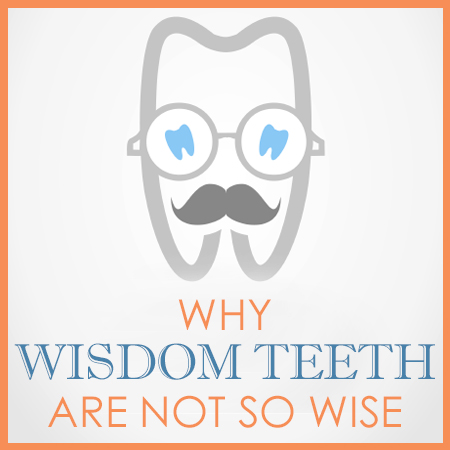Entering this site or the links accessible through this site, you agree to be bound by this agreement. The information and the resources contained on and accessible through this site are made available by Veranda Dentistry and/or its suppliers and vendors, and are subject to your agreement to their terms and conditions.
All contents copyright (c) Veranda Dentistry
All rights reserved, Veranda Dentistry makes this website available to all users for the sole purpose of providing educational information on health-related issues.
The accuracy of website, information, and resources identified are not warranted or guaranteed, or intended to be a substitute for professional health advice, to contradict health advice given, or for health care of any kind.
Your use of this website indicates your agreement to be bound by the Terms of Use and you expressly agree to be bound to the foregoing terms and conditions.
All materials on this website, including the site’s design, layout, and organization, are owned and copyrighted by Veranda Dentistry, or its suppliers or vendors, and are protected by U.S. and international copyrights.
Material on this site may be used for personal use only. Commercial use of any sort is strictly prohibited.
Use of Resources & Information
This site may not be used as a supplement or alternative for health care, and is not intended and does not warrant or guarantee the quality or quantity of any services of any of the advertisers identified; further, the information provided is merely for educational purposes, and its accuracy is not guaranteed. Do not use this site as a substitute for health care. Please consult with your doctor or other health care provider regarding any health questions you may have. This site may not be used for health diagnosis or treatment. Do not use this site to disregard any health advice, nor to delay seeking health advice, because of something you read or see in this site.
You understand and agree that neither Veranda Dentistry nor its suppliers or vendors or linked domain names are responsible or liable for any claim, loss, or damage of any kind, directly or indirectly resulting from your use of this site or the information or the resources contained on or accessible through it.
Veranda Dentistry expressly disclaims any implied warranty or representation about the information or accuracy, relevance, completeness, timeliness or appropriateness for any particular purpose of any kind. Your use of this site is also subject to all additional disclaimers that may appear throughout the site.
Other Internet Sites Links
This site also includes links to other internet sites created and maintained by Veranda Dentistry’s suppliers, vendors, affiliates, or subscribers. Be aware that Veranda Dentistry does not control, makes no guarantees about, and disclaims any express or implied representations or warranties about the accuracy, relevance, completeness, timeliness or appropriateness for a particular purpose of the information or the resources contained on these or any other internet sites.
Further, the inclusion of these links is merely for your convenience and is not intended and does not reflect Veranda Dentistry’s opinion on the accuracy or the importance of these other sites; further, Veranda Dentistry does not endorse in any manner any of the views expressed in, or products or services offered by these other sites. All information in any site by Veranda Dentistry, or associated or linked site, is extracted, read, used, or relied upon by you at your own risk.
Disclaimer of Warranty
Veranda Dentistry and its suppliers and vendors disclaim all express or implied representations or warranties regarding the information, services, products, materials, and any other resources contained on or accessible through this site, including without limitation any implied warranties of merchantability or fitness for a particular purpose. All information provided by Veranda Dentistry is made available “as is” and “as available” without warranty of any kind, or any express or implied promise, including, by way of example, its continuing availability.
Limitation of Liability
With respect to products, goods, or services purchased from any entity identified, listed, named or contacted through Veranda Dentistry’s website, or any links to Veranda Dentistry’s website, to the maximum extent permitted by applicable law, in no event shall Veranda Dentistry or its suppliers or vendors be liable for any direct, indirect, special, punitive, incidental, exemplary, contractual, or consequential damages, or any damages whatsoever of any kind, resulting from any loss, which by way of example, includes loss of use, loss of data, loss of profits, business interruption, litigation, or any other pecuniary loss, whether based on breach of contract, tort (including negligence), product liability, or otherwise, arising out of or in any way connected with the use or performance of this site, with the delay or inability to use this site, or with the provision of or failure to make available any information, services, products, materials, or other resources contained on or accessible through this site, even if advised of the possibility of such damages.
You acknowledge and agree that the limitations set forth above are elements of this agreement, and that this site would not be provided to you absent such limitations.
Indemnification
You agree to indemnify, defend, and hold harmless Veranda Dentistry and its suppliers and vendors from any liability, loss, claim, and expense (including reasonable attorneys’ fees) related to your violation of this agreement or use of this site in any manner. Your use of this site shall constitute your acceptance of the terms of this Agreement, as revised and modified, if any, each time you access this site. Veranda Dentistry may modify this agreement at any time, and such modifications shall be effective immediately upon posting of the modified agreement.
Miscellaneous
Veranda Dentistry’s failure to insist upon strict enforcement of any provision(s) of this agreement shall not be construed as a waiver of any provision or right.
This agreement and the resolution of any dispute related to this agreement or this site shall be governed by and construed in accordance with the laws of the State of Iowa, without giving effect to any principles or conflicts of law. Any legal action or proceeding between Veranda Dentistry or its links, suppliers or vendors and you related to this agreement or this site shall be brought exclusively in a state or federal court of competent jurisdiction sitting in Polk County, Iowa.
Copyright
All materials on this website, including the site’s design, layout, and organization, are owned and copyrighted by Veranda Dentistry or its suppliers or vendors, and are protected by U.S. and international copyrights.
Links
This site contains links to other sites. Veranda Dentistry is not responsible for the privacy practices of other sites that are linked to us.
Questions
Should you have any questions or concerns regarding Veranda Dentistry’s Privacy Policy and Terms of Use, please contact us.
 Most Pleasant Hill and Altoona folks have had some exposure to the concept of wisdom teeth. Perhaps you have had yours removed, are considering a removal, or Dr. Chad Johnson have just shown you our state-of-the-art 3D imaging with the dreaded third molars creeping into view. It’s common to hear patients ask HOW they are removed, but we rarely hear people talking about the reasons for getting rid of wisdom teeth. Today, we at Veranda Dentistry are going to explain what wisdom teeth are, why they don’t deserve to stay in your mouth, and how we can help! As always, feel free to call us with any questions or concerns.
Most Pleasant Hill and Altoona folks have had some exposure to the concept of wisdom teeth. Perhaps you have had yours removed, are considering a removal, or Dr. Chad Johnson have just shown you our state-of-the-art 3D imaging with the dreaded third molars creeping into view. It’s common to hear patients ask HOW they are removed, but we rarely hear people talking about the reasons for getting rid of wisdom teeth. Today, we at Veranda Dentistry are going to explain what wisdom teeth are, why they don’t deserve to stay in your mouth, and how we can help! As always, feel free to call us with any questions or concerns.









